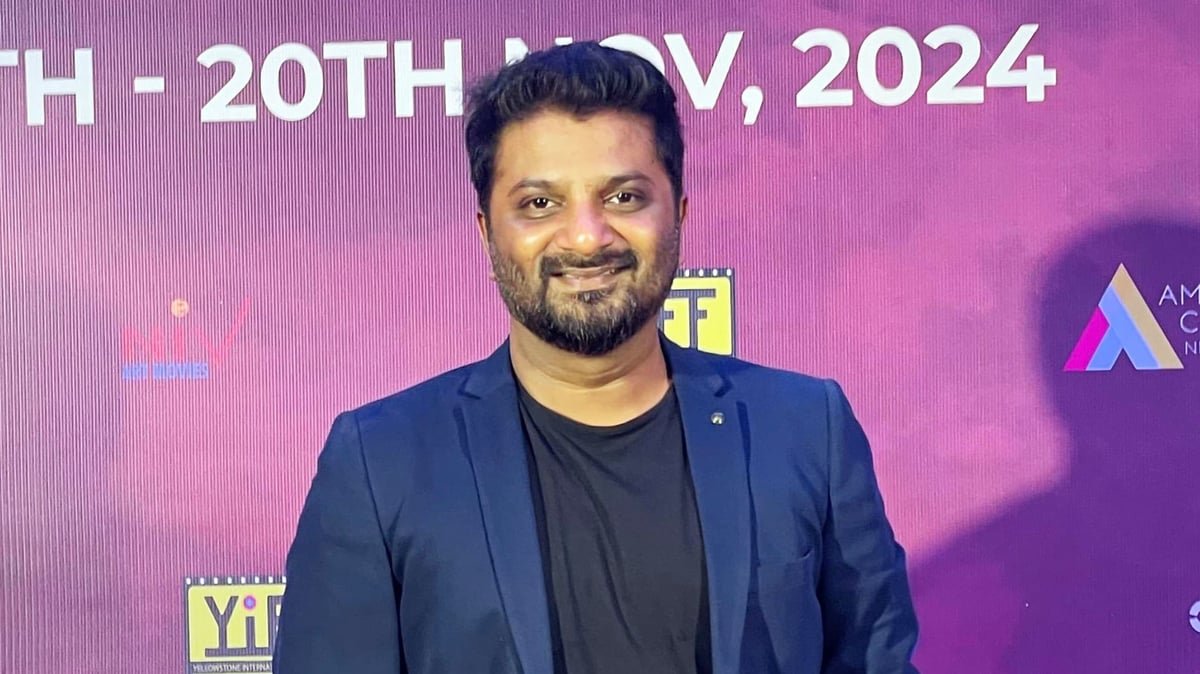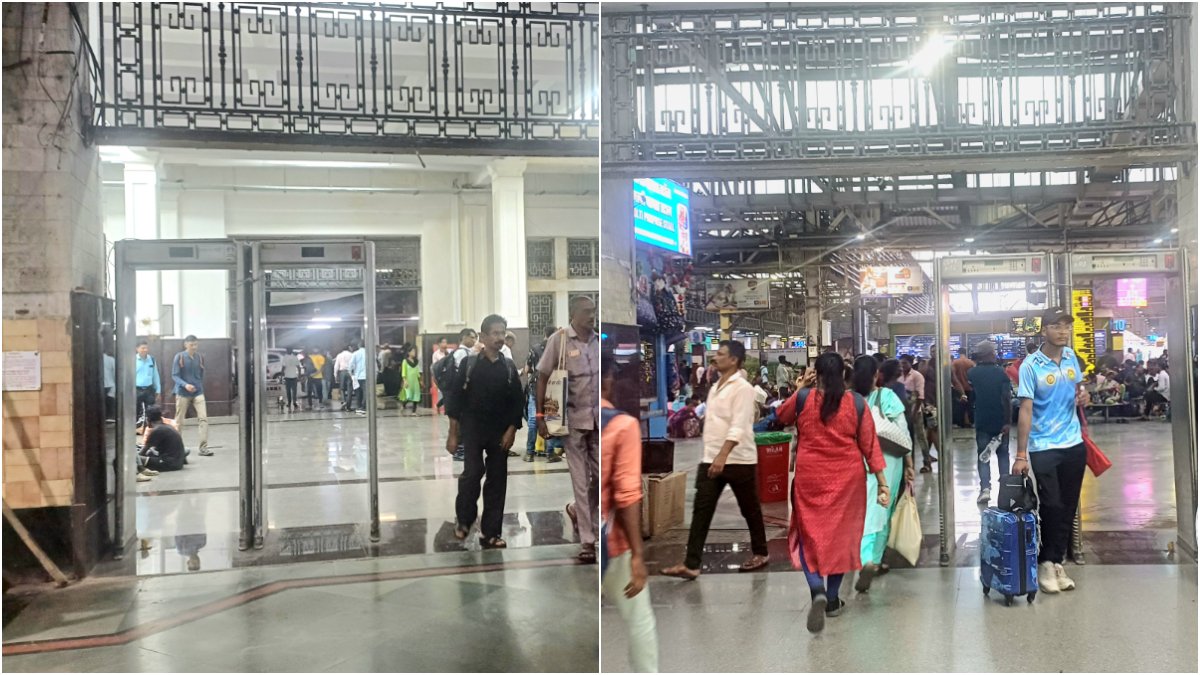The strangely coined film Dead Dead Full Dead is the directorial debut of Pratul Gaikwad, who began his career in an IT company but soon followed his passion for cinema by quitting his job and studying film editing. After moving to Mumbai in 2011, his first industry role was as an assistant editor for Raj & DK’s Shor in the City (2010), with Dum Maaro Dum (2011), Jal (2013) being some of the other movies he has worked on. He also directed the short film What Could Be the Name of the Story? (2019).
Now, with Dead Dead Full Dead (2024), he makes his directorial debut. The film premiered at the Fantasia Film Festival and was also the opening film at the Yellowstone Film Festival, which took place in Delhi and Mumbai. Currently, Pratul is actively pitching feature film scripts to production houses and participated in the Writer’s Ink Script Development Lab in 2024. Excerpts:
Q. What made you go from IT to cinema?
A. You could say the seeds of storytelling were planted early—I’ve been involved in theatre since childhood. The stage was my first canvas, and the idea of creating something artistic always lingered in the back of my mind.
After finishing my engineering degree, I joined an IT company in Pune. By day, I was debugging code; by night, I was hanging out with my FTII friends, secretly debugging my life choices. That’s when I got my first real exposure to cinema—not just the glitz, but the nuts, bolts, and cameras of it all.
The shift wasn’t sudden. Think of it as a slow dissolve in a movie: one frame was me in a cubicle, and the next was me on a set. It was a gradual and natural process of figuring out where I truly belonged. Turns out, my script wasn’t written in binary—it was meant for the big screen.
Q. What did your parents/friends/others say about this uncertain move?
A. Let’s just say my family knows I don’t do anything halfway. They’ve always seen me as this passionate, sincere (and occasionally stubborn) person. So when I told them about my leap into cinema, they supported my decision wholeheartedly—even if it meant trading a stable career for the chaos of cinema. My mom, in particular, is a dreamer on steroids. She’s so optimistic, it’s borderline exhausting!
As for my friends, they weren’t surprised—they saw this coming way before I did. In fact, I think some of them were living their dreams vicariously through me. “Go for it!” they said, probably imagining themselves as the stars of my future films.
I know I’m one of the lucky ones. Not everyone gets the liberty to chase their passion, but I had this rare combination of supportive family and cheerleader friends who made the leap feel less scary. Who wouldn’t want to follow their passion if they could, right?
Q. Tell us about working with Raj & DK in Shor in the City.
A. Working with Raj & DK was an absolute blast! They were the first filmmakers I truly connected with—both in terms of craft and collaboration. Their creative space operates on a “no idea is a bad idea” philosophy, which makes the process exciting and freeing. Even back then, you could sense that they had a distinct creative voice—something bold, fresh, and uniquely theirs.
What really stood out to me was their democratic way of working. They encouraged open conversations and weren’t afraid to experiment. It wasn’t just about following the script; it was about building something better together. That kind of collaborative energy is rare, and it taught me so much.
Recently, I showed Dead Dead Full Dead to DK, and he loved it! He appreciated the boldness of the film, which meant a lot coming from someone I admire so much. Of course, in true DK fashion, he didn’t shy away from giving me a little constructive criticism too—because that’s just how he is. Honest, encouraging, and always pushing you to do better.
Q. How did you come up with the story of Dead Dead Full Dead? Is inspired by the rise in horror comedies in India?
A. Not at all! The story of Dead Dead Full Dead was born during the pandemic—a time when the world hit pause, and I hit my keyboard. While others were learning to bake sourdough, I challenged myself to write not one, but two feature scripts. Why? Because what else do you do when you’re stuck at home with an overactive imagination?
I made sure the two stories were poles apart in genre to keep things fresh and avoid a creative mix-up. With DDFD, I decided to go wild. I let my inner mad scientist take over and wrote purely for myself—things that made me laugh, thrilled me, or just quenched my creative thirst. The result? A script that was unapologetically bonkers and, honestly, a film I’d love to watch.
Budget was another factor. I deliberately crafted it as a low-budget project—something doable with limited resources. I didn’t want to wait around for big industry producers to take notice. This way, I could bring my vision to life on my own terms.
So, no, DDFD wasn’t about following the trend. It was about taking a leap into the unknown and writing without worrying whether people would “get it.” It was an experiment, a passion project, and a little bit of a love letter to the genre I enjoy.
Q. What are the struggles you face as a filmmaker?
A. Coming from the structured world of IT, stepping into the chaos of filmmaking felt like jumping from a neatly coded program into an unscripted improv scene. At first, it was overwhelming—accepting that there’s no “manual” or “algorithm” for success in this industry.
One of my biggest challenges has been getting my work in front of the right people. For the past six years, I’ve been pitching my feature scripts to production houses. Every time, something or the other would go wrong—like a perfect shot ruined by an uninvited boom mic in the frame. The process taught me a hard truth: luck plays a massive role here, and so much is beyond your control.
The toughest part? Living in endless hope and keeping your sanity intact. It’s like waiting for the climax twist of a film that never seems to come. But one thing I’ve learned is that in this industry, consistency beats talent or hard work. You just have to keep showing up, keep creating, and keep believing—because giving up isn’t an option for anyone who truly loves this craft.
Q. How easy or difficult is to to survive in this business?
A. Surviving in this industry is like being dropped into a race where no one tells you the finish line—or even the direction. You’re just running, hoping you’re not chasing your own shadow. It’s chaotic, unpredictable, and yes, frustrating at times.
The truth is, it’s tough. But that’s also what makes it thrilling. The only way to stay in the game is to focus on your craft like it’s your lifeline—keep creating, keep experimenting, and keep pushing yourself. And then, of course, there’s the magic formula: being with the right people at the right time. Or as I like to think of it, catching the perfect shot when the light hits just right.
It’s not easy, but if you love what you’re doing, you learn to embrace the madness. After all, what’s cinema without a little drama?




